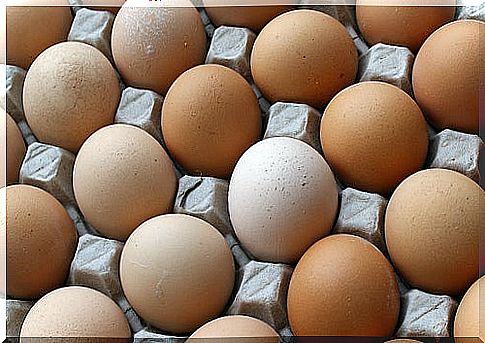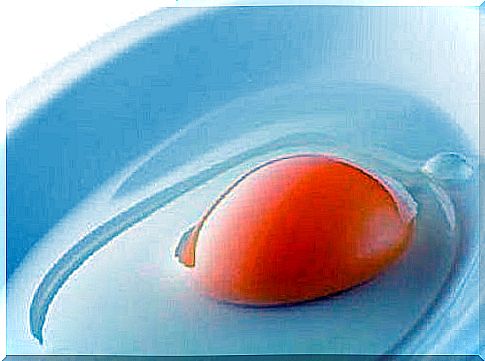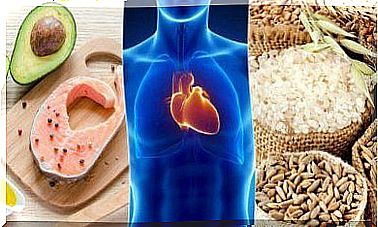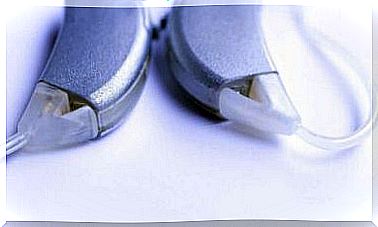What You Didn’t Know About Eggs
It is always recommended to wash the food before processing. In the case of hen’s eggs, this is not done so as not to break the protective shell.

Eggs are omnipresent in our diet: breakfast eggs on Sunday, scrambled eggs for lunch, omelets, pancakes and the like are popular dishes that only consist of eggs. Egg is also popular as a baking ingredient, but there are things about eggs that you probably didn’t know:
Who determines the color of the egg?
Whether an egg is brown or white is no coincidence – it depends on the breed of chicken! There are many chickens that only lay white eggs . Likewise, there are also many chickens that only lay brown ones. And there are also mint green ones!
These are laid by a special breed, the Araucana chickens. And there are also really dark brown “chocolate” eggs. They are laid by the “Maran” breed and almost look as if the Easter bunny had stopped by!
How does the yolk turn yellow?
The color of the egg yolk does not depend on the breed of the chicken, but on the food the chicken is fed! The yellow color comes from the carotenoids, the same coloring agents that turn a carrot orange.
So if the chicken eats a lot of it, the yolks will turn yellow. Because many people think “the yellower the egg yolk, the happier the chicken”, this color is simply added to chicken feed today. In reality, the color of the yolk does not say anything about how the animal is kept.

How thin is the shell?
Raw eggs are almost literally fragile. But that doesn’t apply to everyone! There are breeds of chickens that naturally produce thicker eggshells. If the food does not contain enough calcium, the eggshells also become thinner.
The thickness of the eggshell varies between 0.2-0.4mm. In nature, an older chicken lays larger ones, but does not have more calcium available than for smaller ones. So the largest eggs are usually the most fragile.
In modern egg production, however, chickens don’t get old and get enough calcium in their feed, which is why the eggshells are all about the same thickness.

How many eggs do we eat on average?
The “average German” eats 218 eggs per year. Quite a lot! And there are more every year!
That doesn’t mean that we eat an egg almost every day, but there are eggs everywhere in our industrially produced food without us noticing: in baked goods, pasta, ready meals, desserts, beverages …
Does every chicken lay an egg every day?
A chicken from factory farming that was specially bred for high laying performance can also produce up to 320 eggs a year. That’s a lot – almost an egg a day. Domestic chickens lay between 180 and 240 eggs a year, depending on the breed.
A clear difference! As the chicken gets older, it lays less. Therefore, in factory farming, chickens never get old – they become unproductive and slaughtered.
If we compare the laying performance of a normal domestic chicken with the average egg consumption of a German, one chicken per head is theoretically sufficient.

Is a barn eggs better?
In terms of taste, it does not depend on the husbandry, but on the feed. In the past, many factory-farmed chickens were fed fishmeal, and the egg tasted like fish.
Since 2012, cages have not been allowed in the EU, so-called “laying batteries” no longer exist in the EU. So floor farming is one of the successors to cage farming and is still factory farming with all its disadvantages.
The most species-appropriate husbandry is free-range husbandry, where each chicken must have 4 square meters of exercise.
Are you unhealthy?
The egg as the cause of high blood cholesterol does not have a good reputation. But it’s just the reputation that is so bad: an egg has 5 to 7 grams of fat, depending on its size. This corresponds to about a teaspoon of oil.
Compared to other animal products, this is a small amount of animal fat, a sausage, for example, contains five times as much! A healthy, balanced diet can therefore also contain eggs, they are not unhealthy. As always, it depends on the amount!

Where did my egg come from?
Germans eat more than their chickens can lay. Therefore, many that go over the counter in Germany are placed abroad.
Since the eggs must be labeled, you can see where the egg comes from on every packaging. It’s like a car: every egg carton has its license plate number. This shows the country of origin and the type of husbandry.









